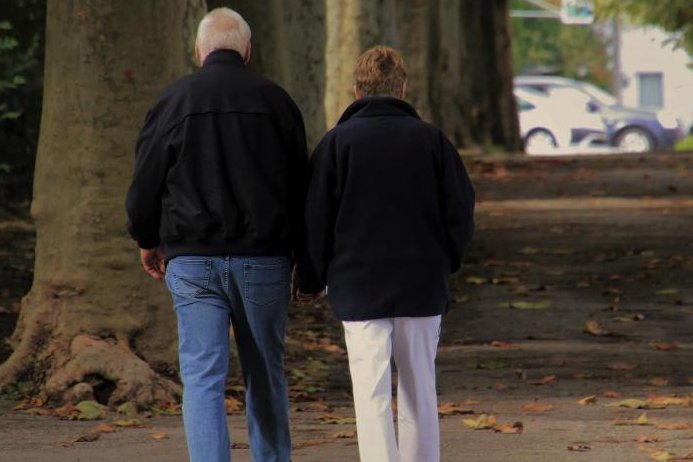Older adults should avoid periods of inactivity, even in colder weather, to maintain health. Photo by pasja1000/Pixabay
Dec. 12 (UPI) -- The weather outside may be getting frightful in much of the country as winter approaches, but a new study suggests older adults may want to limit the time they spend cozy and warm indoors if they want to stay healthy.
The new research, presented Wednesday during the Physiological Society's Future Physiology 2019 conference in Liverpool, England, found that after just two weeks of reduced physical activity -- around 1,500 steps per day or fewer -- older adults lose significant amounts of muscle and experience substantial gains in body fat.
Inactivity also decreased bone mineral density -- which for older adults increases risk for diseases like osteoporosis as well as broken bones from falls, researchers revealed.
"The severe impact of short-term inactivity on our health is hugely important to communicate to people," Juliette Norman, a doctoral student at the University of Liverpool, where the research was conducted, said in a press release. "If the gym is hard to get to, people should be encouraged to just meet 10,000 steps as even this can guard against reductions in muscle and bone health, as well as maintaining healthy levels of body fat."
The University of Liverpool study is unique, the researchers said, because it looked at only two weeks of a low step-count of 1,500 per day in both young and older adults. This type of short-term reduction in activity often occurs as a result of people spending more time at home due to illness, adverse weather or even just over the festive period.
To compare the effects of this activity in both older and younger adults, the study enrolled 47 participants -- 26 "younger" people between 20 and 36 years of age and 21 "older" adults between 54 and 66 years of age.
Prior to starting the two-week period of inactivity for the study, both groups of participants engaged in the same level of physical activity over a four-day period -- more than 10,000 steps per day, as measured using an app on a mobile device, without "vigorous exercise."
After the two-week period of inactivity, the authors observed that study participants experienced "significant losses" in total body lean mass, lean leg mass and muscle strength. At the same time, percentage of body fat increased by as much as 3 percent in younger study subjects and as much as 4 percent in older subjects.
In addition, cardio-respiratory fitness significantly declined during the inactivity period, as measured by oxygen capacity and other metrics. Cardio-respiratory fitness is the efficiency with which oxygen is supplied to muscles during physical activity, and it is affected by cardiovascular and respiratory health.
Poor cardio-respiratory fitness may increase one's risk of developing certain conditions, like heart disease, at a younger age.
The authors said their findings are notable, given that people generally experience losses in muscle mass, strength and bone density as they age, leading to reduced ability to perform daily activities and, potentially, chronic health conditions.















